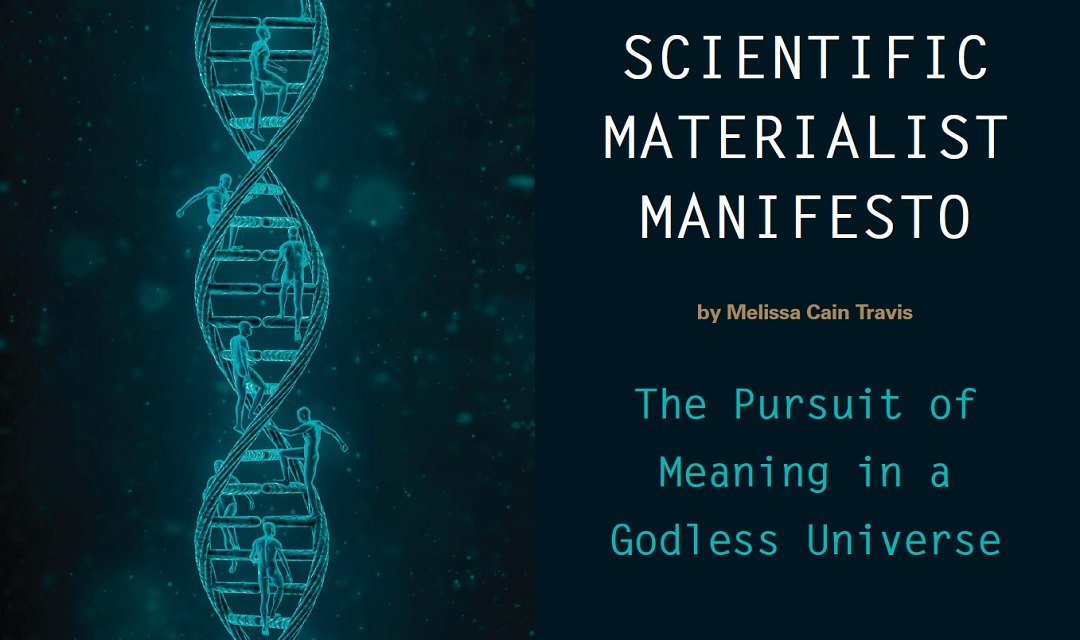This article first appeared in theChristian Research Journal, volume 43, number 2 (2020). For more information about the Christian Research Journal, click here.
As Albert Einstein rose to international fame during the first half of the 20th century, the media often pressed him to expound upon his religious views. He was a physicist of unsurpassed brilliance, having developed the theory that supplanted Newtonian physics and transformed our conception of the fundamental structure of the cosmos, yet the general public was eager to know his view on the existence of a Creator. Einstein often obliged. He unabashedly declared that he did not believe in a personal Creator who was involved in the lives of human beings, but Einstein frequently used theological language in his remarks about the stunning rationality exhibited by the workings of the universe.1 Groundbreaking scientific discoveries sold many newspapers and magazines, but throwing in the God question guaranteed that the publications would, to use contemporary verbiage, go viral.
The same seems to be true today. Since Einstein, the natural sciences have only risen in prestige and cultural influence, and the scientific community is now widely regarded as the ultimate authority on truth about the world. Some of its members have produced bestsellers that popularize cutting-edge scientific thought. The issue, though, is that they often step well beyond the domain of their respective specialties to make pronouncements on questions traditionally reserved for theology and philosophy, such as the existence of God, morality, free will, and life’s ultimate purpose. In an effort to champion a philosophical naturalist perspective, they imply that advancements in the natural sciences have somehow undermined the case for God and other theological doctrines, such as the existence of the human soul. According to these writers, science is well on its way to providing a comprehensive explanation of all of reality: how the universe began, how everything developed, and the eventual dissolution of it all. To say that certain remaining mysteries might be best answered by postulating a transcendent Creator or a human soul is to commit a terrible and naïve fallacy — the dreaded “god of the gaps” mistake. Thus, to be a scientifically literate person, this modern narrative suggests, is to be a materialist — to believe that the only objective reality consists of matter and energy behaving according to the laws of physics and chemistry.
What, then, of the intangibles that we hold most dear, including our inescapable intuitions about the intrinsic value of humanity, moral duties, individual purpose, and ultimate meaning? As scientifically informed people, must we regard these ideas as nothing more than useful fiction that somehow propelled human evolution forward? Interestingly, scientific materialists are often unwilling to embrace such a wholesale nihilism, and some attempt to reconcile their worldview with our intuitive understanding of ourselves as creatures whose existence and subjective experiences truly matter. Instead of sticking to the scientific topics within their range of professional expertise, these writers have produced fascinating works on cosmology that also address perennial questions that lie outside of science’s purview. They go to great rhetorical lengths to reassure their readers that meaning, purpose, morality, and so on can still be had by short-lived organisms destined to dissolve into a universe that is itself bounding towards oblivion. We might label this book genre “scientific materialist manifesto.”
The writer of a scientific materialist manifesto insists that doing away with God does not doom us to a life devoid of meaning, value, and purpose; he or she understands that an attractive, satisfying worldview must somehow justify the existence of such things. The common strategy is to winsomely explain why we need not regard life as pointless and hopeless despite the fact that humanity is only a short blip on the grand cosmic radar, and our universe itself faces certain and total annihilation in the distant future. However, attempts to smuggle these crucial philosophical concepts into their so-called “scientific picture of the world” (i.e., scientific materialism) fail quite miserably.
A Meaningful Life…While It Lasts?
In his latest book, Until the End of Time: Mind, Matter, and Our Search for Meaning in an Evolving Universe, theoretical physicist and science celebrity Brian Greene details the beginning, evolution, and eventual demise of the universe. His scientific narrative is brilliantly written, inspiring a deep sense of cosmic wonder while making notoriously difficult subjects accessible to the non-specialist. Along the way, he makes it clear that he is seriously devoted to a naturalistic view of reality, while openly acknowledging that “profound questions abound, like what or who created space and time, and what or who imposed the guiding grip of mathematics, and what or who is responsible for there being anything at all.”2 Admirably, he is candid about what he describes as his “deep-seated reductionist commitment, which holds the view that by fully grasping the behavior of the universe’s fundamental ingredients we tell a rigorous and self-contained story of reality.”3 In other words, he is not willing to “allow a Divine Foot in the door.”4
Despite his belief that the human race is merely an unplanned and temporary side effect of deterministic physical processes (any indeterminacy at the quantum level notwithstanding), that “the universe won’t so much as blink” if we are all suddenly obliterated by an asteroid or any other mortal peril, Greene attempts to make space in his scientific materialism for legitimate meaning, morality, and purpose in human life.5 By his estimation, these are entirely artificial constructs: “Right and wrong, good and evil, destiny and purpose, value and meaning are all profoundly useful concepts, but I am not among those who believe that moral judgments and assignments of significance transcend the human mind. We invent these qualities.”6 If this is the case, how can they be said to matter beyond the pleasurable brain states they produce? Greene’s answer to this question has a lovely poetic veneer, but fails to genuinely satisfy our existential longings:
We are ephemeral. We are evanescent. Yet our moment is rare and extraordinary, a recognition that allows us to make life’s impermanence and the scarcity of self-reflective awareness the basis for value and a foundation for gratitude. While we long for a perdurable legacy, the clarity we gain from exploring the cosmic timeline reveals that this is out of reach. But that very same clarity underscores how utterly wondrous it is that a small collection of the universe’s particles can rise up, examine themselves and the reality they inhabit, determine just how transitory they are, and with a flitting burst of activity create beauty, establish connection, and illuminate mystery.7
In other words, it is so astonishing that we are even here to contemplate the grand mysteries of existence, and our time here is so brief, that our response should be to see the value of it and be extraordinarily grateful. We must settle for synthesizing our own meaning in whatever way we see fit:
As we hurtle toward a cold and barren cosmos, we must accept that there is no grand design. Particles are not endowed with purpose. There is no final answer hovering in the depths of space awaiting discovery. Instead, certain special collections of particles can think and feel and reflect, and within these subjective worlds they can create purpose. And so, in our quest to fathom the human condition, the only direction to look is inward. That is the noble direction to look. It is a direction that forgoes ready-made answers and turns to the highly personal journey of constructing our own meaning.8
Ultimately, Greene attempts to soothe our existential angst with the balm of scientific wonder and the romantic poignancy of living life with a personal sense of awe and gratitude in the face of our impending non-existence. (Never mind that such emotions, on the scientific materialist’s account, are nothing more than a pattern of chemical brain activity — particles in motion — that produce a pleasurable experience.) How is this anything other than a Pollyannaish game of make-believe? Moreover, how is the ability to reflect upon our own existence and our concepts of meaning and purpose not an arbitrarily assigned signal of significance?
A Poetic Naturalism?
Another example of a materialist strategy to circumvent nihilism can be found in Sean Carroll’s recent book, The Big Picture: On the Origins of Life, Meaning, and the Universe Itself. Like Greene, Carroll details the birth, development, and impending extinction of the universe and regards humanity as the serendipitous and brief product of material processes that have been in operation since the Big Bang. In the grand scheme of things, to say we are inconsequential is a vast understatement, but Carroll insists that this does not have to be a downer. He adopts a view he calls “poetic naturalism,” which encompasses both the objective reality science explicates, as well as our inner human experience. He explains: “A poetic naturalist says that we can have two very different-sounding ways of describing the world, a physics-level story and a human-level story, which invoke separate sets of concepts and yet end up being compatible in their predictions concerning what happens in the world.”9 Poetic naturalism, he says, “asks us to take the dramatic step of viewing meaning in the same way we view other concepts that human beings invent to talk about the universe….It’s up to you, me, and every other person to create meaning and purpose for ourselves.”10 As human beings, these are things we need for a psychologically healthy, happy existence, so we should invent them, live as if they are real, and ignore the fact that they have no objective grounding or endurance beyond death.
But if meaning and purpose are not objectively determined and the attractive façade we construct will unceremoniously end along with our conscious existence, how can anything about our lives truly matter? Carroll anticipates this question:
Maybe we are fooling ourselves if we think we can find fulfillment once we accept that we are part of the physical world, patterns of elementary particles beholden to the laws of physics. Sure, you can say you are leading a rich and rewarding life based on your love for your family and friends, your dedication to your craft, and your work to make the world a better place. But are you really? If the value we place in such things isn’t objectively determined, and if you won’t be around to witness any of it in a hundred years or so, how can you say your life truly matters? (Emphasis in original.)11
Carroll’s response? “This is just grumpiness talking.”12 His view is that we should go right on cultivating positive attitudes and beliefs about meaning and purpose at the subjective human level in spite of the stark reality of our situation. We should simply pretend rather than face up to the logical outworking of scientific materialism. This seems intellectually dishonest at best. It is, to be blunt, an exercise in tragic absurdity. How is such self-delusion substantively different from what atheists like to call the “emotional crutch” of religion? Pot, meet kettle.
The Absurdity of Life without God
What Greene and Carroll illustrate is the impossibility of living both consistently and contentedly within the worldview of scientific materialism. As William Lane Craig put it in his renowned lecture and essay, “The Absurdity of Life Without God”: “If one lives consistently, he will not be happy; if one lives happily, it is only because he is not consistent.”13 It is, Craig explains, contradictory to say that the cosmos is without meaning, value, and purpose at the objective, scientific level while also arguing that we can simply manufacture authentic meaning, value, and purpose for ourselves. In the context of human life, these concepts cannot exist in any real sense without divine grounding and permanence; we need a transcendent source to serve as the former, and immortal souls to realize the latter. Greene and Carroll reject both.
In a future article, I will explore how writers of scientific materialist manifestos suggest that advancement in scientific knowledge has undermined the case for the existence of God and the immaterial soul. It will be seen that scientific materialism is even more expensive than its proponents realize.
Melissa Cain Travis, PhD, serves as an assistant professor of Christian apologetics at Houston Baptist University and is the author of Science and the Mind of the Maker: What the Conversation Between Faith and Science Reveals About God (Harvest House, 2018). www.melissacaintravis.com
NOTES
- See Max Jammer, Einstein and Religion: Physics and Theology (Princeton, NJ: Princeton University Press, 2002); Michael R. Gilmore, “Einstein’s God: Just What Did Einstein Believe About God?” Skeptic 5, no. 2 (1997): 64, web.archive.org/web/20020126112239/http://www.skeptic.com/archives50.html.
- Brian Greene, Until the End of Time: Mind, Matter, and Our Search for Meaning in an Evolving Universe (New York: Alfred A Knopf, 2020), 58.
- Greene, Until the End of Time, 119.
- This phrase was made famous by evolutionary biologist Richard Lewontin, in his essay, “Billions and Billions of Demons,” which appeared on January 9, 1997 in New York Review of Books, https://www.nybooks.com/articles/1997/01/09/billions-and-billions-ofdemons/.
- Greene, Until the End of Time, 311.
- Greene, Until the End of Time, 305.
- Greene, Until the End of Time, 315.
- Greene, Until the End of Time, 317–18.
- Sean Carroll, The Big Picture: On the Origins of Life, Meaning, and the Universe Itself (New York: Dutton, 2016), 381.
- Carroll, The Big Picture, 390.
- Carroll, The Big Picture, 390–91.
- Carroll, The Big Picture, 391.
- William Lane Craig, “The Absurdity of Life Without God,” Reasonable Faith, https://www.reasonablefaith.org/writings/popular-writings/existence-nature-of-god/theabsurdity-of-life-without-god/









